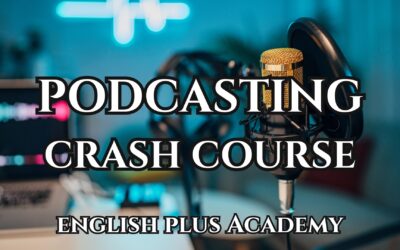Welcome to the first episode of Academy Literature! If you’re here, you’re either in love with literature or about to fall in love with it. In this episode, we dive into the basics of literature, and trust me, this is just the beginning. There’s a whole world of stories waiting to be uncovered, and in this episode, we’ll give you a taste of what’s to come. Let’s explore how literature connects us to life’s big questions and the strategies that will help you get the most out of every book you pick up.
Life’s Big Questions in Literature
Literature has been asking the tough questions for centuries. The great thing about stories, plays, and poems is that they explore the very questions we all ask at some point. Here are some of the big ones we touched on in the episode:
- What are life’s big questions? What’s the meaning of life? Why are we here? Every great work of literature asks questions about existence, purpose, and our place in the world.
- Does love require sacrifice? From tragic romances to heartfelt dramas, literature is filled with characters giving up everything for love. But is it always worth it?
- What is the price of freedom? Freedom is rarely free in literature. It comes with tough choices, risks, and sacrifices, whether in personal relationships or on a larger political scale.
- How does heritage shape us? Our roots, our family, and our culture shape our identity. Literature helps us explore how heritage influences who we are and who we become.
- When is ambition dangerous? We all know ambition can drive us to achieve great things, but it can also lead to ruin, as seen in classics like Macbeth and The Great Gatsby.
Is Literature for Everyone?
One of the biggest misconceptions about literature is that it’s only for academics or enthusiasts. In the episode, we break down why that’s not true. Literature is for everyone—whether you’re a doctor, lawyer, engineer, or someone simply looking to explore human nature through stories. Literature helps build empathy, deepens understanding, and fosters critical thinking, no matter your profession.
The Genres of Literature
In this episode, we also explore the different genres in literature and beyond:
- Fiction: The playground of the imagination, where anything is possible—from flying dragons to dystopian futures.
- Poetry: Short, powerful, and packed with emotion. Poetry distills life into a few perfect words.
- Drama: Plays and scripts that bring characters and conflicts to life before your eyes, filled with action and raw emotion.
- Nonfiction: Real stories and facts that are often just as gripping as fiction, offering deep insights into the world around us.
- Media & Advertising: TV shows, movies, news, and even ads are modern-day storytelling tools that shape how we see the world.
Strategies for Studying Literature
Understanding literature isn’t just about reading—it’s about reading actively. We talked about these key strategies that will help you become a more engaged reader:
- Ask the right questions: Dive deeper into why characters make certain decisions or why the author chose specific words.
- Make connections: Relate the story to your own life or connect themes across different works of literature.
- Record your reactions: Write down what resonates with you as you read—this helps you engage with the text and deepen your understanding.
Becoming an Active Reader
Active reading is the key to unlocking the power of literature. In this episode, we discuss several techniques that will help you do just that:
- Preview the text before you start to get a sense of what’s coming.
- Set a purpose for why you’re reading to keep your focus sharp.
- Connect personally with the story—relate it to your own experiences.
- Use prior knowledge to help you better understand the themes and ideas.
- Predict what will happen next to keep yourself engaged.
- Visualize what’s being described to bring the story to life in your mind.
- Monitor your understanding as you read, and don’t be afraid to pause and reflect.
- Make inferences to read between the lines and uncover deeper meanings.
Writing and Understanding Literature
Writing isn’t just an academic exercise—it’s one of the best ways to deepen your understanding of literature. When you write about a story, poem, or play, you organize your thoughts, engage critically with the text, and discover connections you might’ve missed. It’s a personal way to make the story yours.
Final Thoughts
In this episode, we’ve only scratched the surface of what literature has to offer. As we continue this journey in future episodes, we’ll dig deeper into specific works, authors, and themes that have shaped the literary world. Literature is a timeless conversation that anyone can join, and Academy Literature is here to guide you through it.
So, if this episode sparked your curiosity, stay tuned. Every time you tune in to Academy Literature, there’s something new and exciting waiting for you. Until next time, keep reading, keep asking questions, and keep connecting with the stories that shape our world.
Want to access the full episode and our entire catalog? Become a premium subscriber on Apple Podcasts or Patreon and unlock a treasure trove of stories that will ignite your curiosity and expand your knowledge!










0 Comments